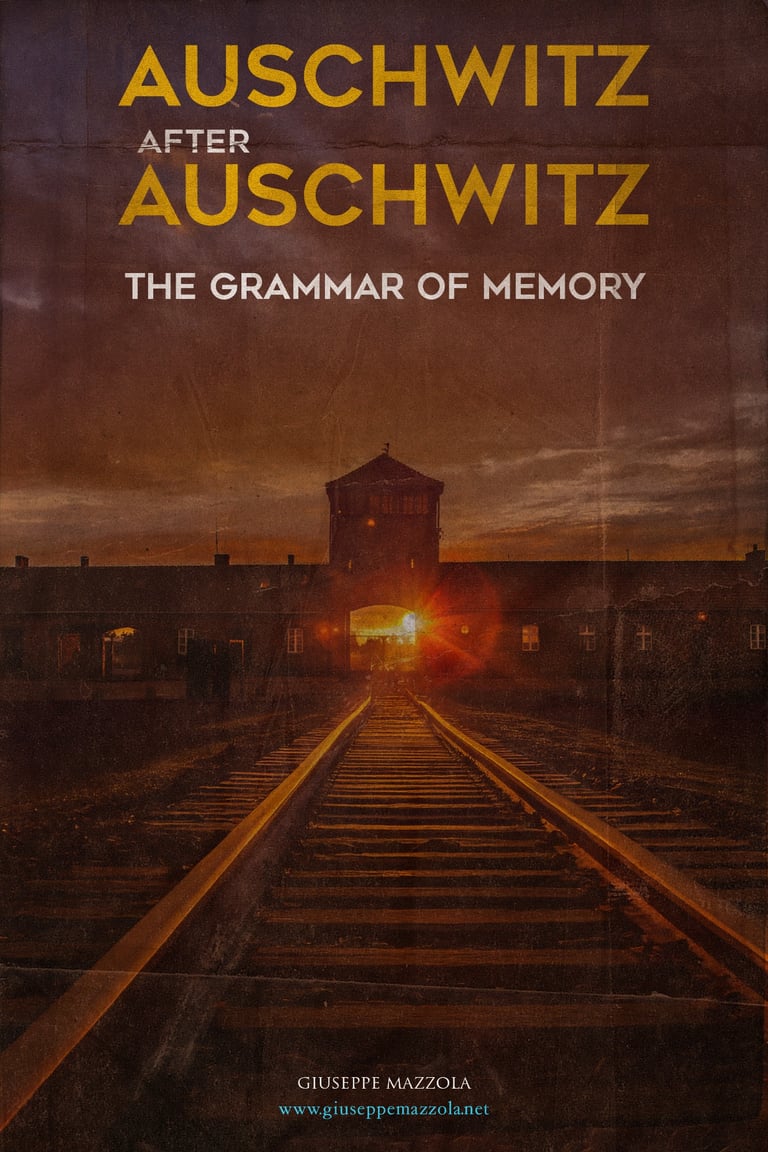Auschwitz isn't just a geographical name: it was the logistical heart, the industrial machine of Nazi extermination. It is a complex— Auschwitz I, the concentration camp; Auschwitz-Birkenau, the extermination camp; Monowitz and the other satellite camps—where deportation, forced labor, selection, starvation, experiments, and gas chambers intertwined.
For several years, I have walked among those tracks and those spaces; I have listened to every silent stone, and I assure you, the air there screams. The walls don't just tell stories of violence: they also enclose the ultimate rejection of humanity, the collective decision to deprive people of their most basic dignity.
There's something I've learned with time and silence: Auschwitz created a grammar of silences.
It's not an indistinct void but a complex language. There are silences that are fixed points — stones that don't respond — and silences that function like two points, opening up a question that challenges us. There are silences as long as hyphens that connect the past to the present; and silences as short as accents, which emphasize the loss of a face. Learning that grammar means knowing how to read absences: understanding that every gap between words is a witness in itself, that every empty corner is the page where someone could have written their life.
It is our duty to transform that grammar into living language — to pronounce the names, to fill the spaces with memory and responsibility—because silence, if not questioned, can become an accomplice to oblivion.
Those who arrive at Auschwitz in silence often discover that silence transforms into words.
Words that tell names, stories, glances. Words that sustain Memory and bring it to life. Words that teach, that nourish, positions and choices. Remembering is a duty.
There is no simple consolation in Memory: there is commitment.
This short video, the fruit of many days spent in the Auschwitz-Birkenau Extermination Camps (now the Auschwitz-Birkenau State Museum), demonstrates the importance and desire to be heirs and masters of Memory today.
This means taking full responsibility: not turning memory into a mere ornament, not reducing it to an occasional ritual, but cultivating it as a political and moral capacity. Being heirs means welcoming the voices that have been handed down to us; being masters means treating them with care, using that legacy to build institutions, educational practices, and social responses that prevent further discrimination and violence.
Memory demands that we be active custodians: preserving documents, stories, and testimonies, but also translating memory into laws, teachings, and daily choices that make coexistence more humane. These images are dedicated to those who have decided to seal a vow with the present: to preserve Memory in order to make the first gesture of expressing our closeness, humanity, and true freedom.
Giuseppe Mazzola


